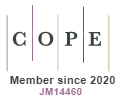English as a third language: considerations on foreign language teaching for deaf students in the Brazilian basic education
DOI:
https://doi.org/10.5585/dialogia.N28.6722Keywords:
Deafness. English Language. Basic Education.Abstract
There are few studies in Brazil seeking to investigate the development of foreign languages in formal settings for deaf students. As a result, English language teaching in the inclusive school is still a practice guided by few theoretical bases. In this sense, this work aims to discuss the teaching of English for deaf students in basic education, bringing up issues of motivation, language transfer and interpretation in the teaching process. In our empirical and bibliographical analysis, we realized that the teaching of English is more complex for the deaf student as it is considered his/her third language, dependent on the systems of Libras and Portuguese. We note that deaf students continue at margin of education and in the case of language teaching, the situation is worse, because they do not always have opportunities to organically interact or see the foreign language as relevant, given its usual methodological configuration.Downloads
Download data is not yet available.
Downloads
Published
2018-01-31
How to Cite
KUPSKE, Felipe Flores. English as a third language: considerations on foreign language teaching for deaf students in the Brazilian basic education. Dialogia, [S. l.], n. 28, p. 109–120, 2018. DOI: 10.5585/dialogia.N28.6722. Disponível em: https://uninove.emnuvens.com.br/dialogia/article/view/6722. Acesso em: 19 oct. 2024.
Issue
Section
Artigos






